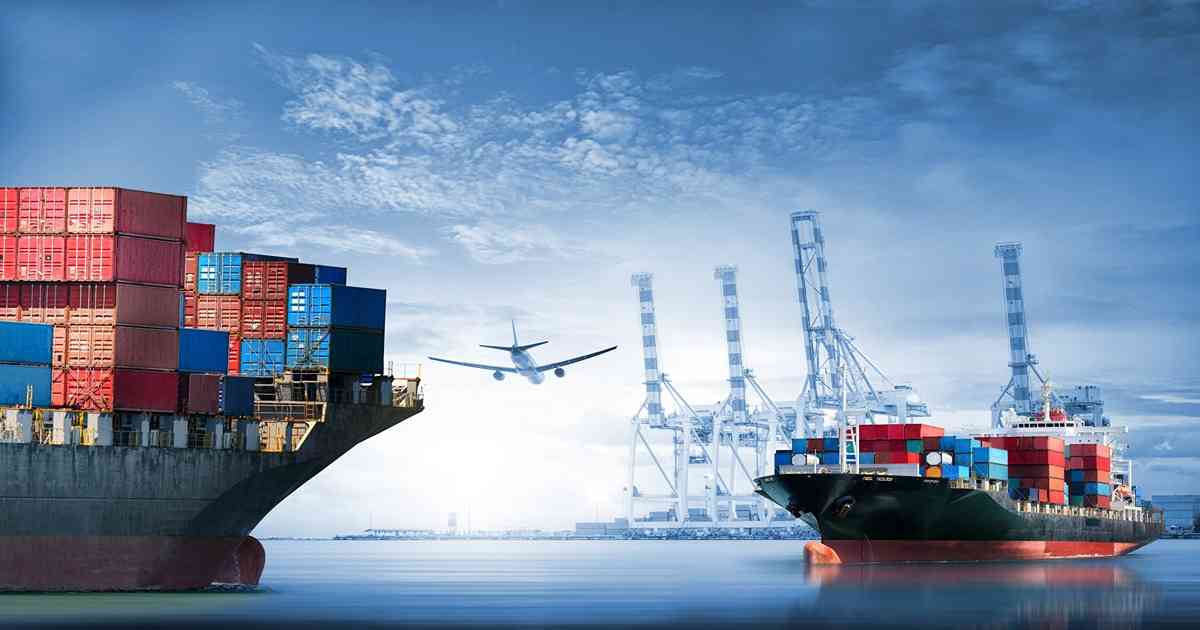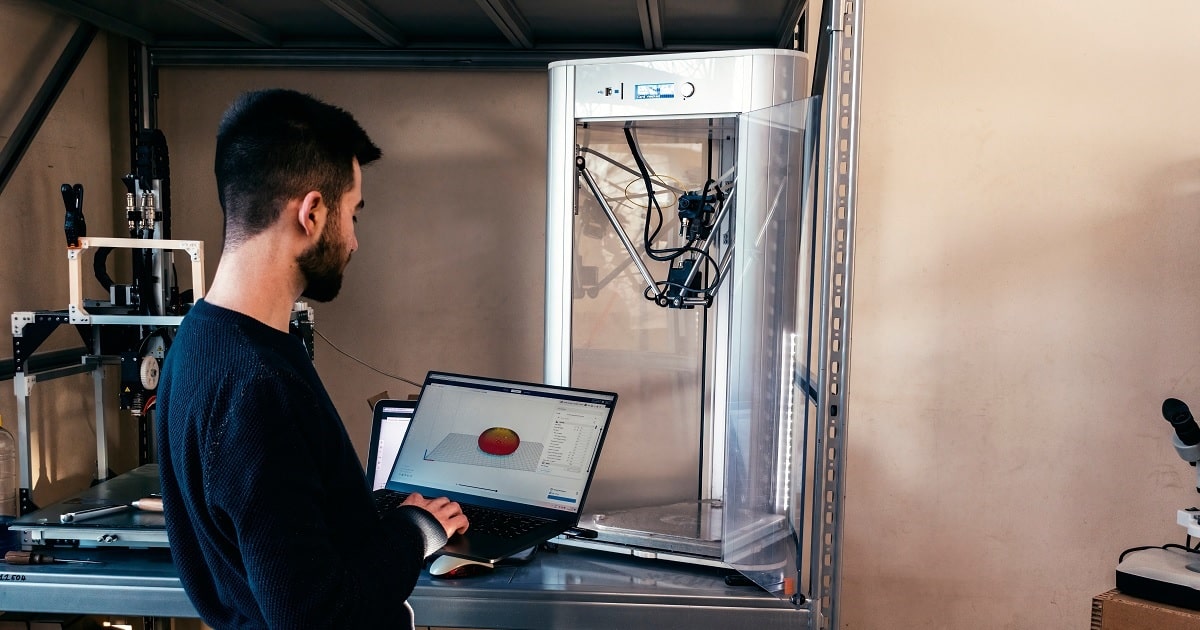
Supply Chain
Article | August 17, 2023
The rapid growth of e-commerce continues to create new challenges for retailers as they plan distribution strategies. One of those challenges is managing the high volume of returns. One in three shoppers returns items, and more than half read a company’s returns policy before making a purchase. Retailers lose $50 billion annually due to inefficiencies in processing returns, and distribution centers handling returns need 15% to 20% more space than a traditional facility.
Read More

Supply Chain
Article | May 26, 2023
Purchasing software and supply chain management software are often mistaken for one another, but both have distinct functionalities. While purchasing software automates the procurement process, supply chain management software executes logistical transactions and manages supplier relationships. This report identifies the similarities and differences between the two software categories to help you understand which one is better suited to your needs.
What is purchasing software?
Purchasing software is an online tool that allows businesses to automate the process of procuring goods and services. It includes security compliance and reporting features.
Purchasing solutions offer integrated tools for invoice approval, inventory control, asset management, customer service, and work order management. They help manage contracts, analyze spending, track sales deliveries, and monitor inventory levels. They also assist in identifying bottlenecks in the purchase process, such as functions that have high expenditure.
Purchasing software offers invoice processing capabilities as well. Procurement professionals and accounting teams can use the tool to generate invoices, track invoice status, and monitor expenses via detailed reports.
What is supply chain management software?
Supply chain management software is a software platform that allows supply chain managers to automate the entire supply chain process—from acquiring raw materials to delivering the finished goods to consumers. The software provides tools for monitoring stock levels, including raw materials, and predicting future requirements based on the current inflow and outflow of inventory.
Supply chain management tools manage material handling, order fulfillment, and information tracking for stakeholders such as manufacturers, suppliers, and transport and logistics providers. They also track the returns of damaged goods, process refunds and insurance claims, and provide planning and forecasting tools for supply chain professionals.
What do they have in common?
Purchasing is a crucial component of supply chain management. Together, these processes significantly contribute to an organization’s procurement cycle. Despite the functionality differences, both the software categories have a few features in common, including supplier management, order management, and forecasting.
Which tool is right for you?
The answer to this question depends on your use case. If you’re looking for a tool that majorly focuses on acquiring supplies, opt for a purchasing software solution, as it will help you streamline the procurement cycle, maintain purchase order accuracy, and monitor supplier activities. However, if you wish to manage your entire supply chain operations, including supplier, transportation, warehouse, and inventory management, then investing in a supply chain software solution would be the right choice.
Read More

Warehousing and Distribution
Article | July 11, 2023
Maintain a competitive advantage by effectively managing supply chain. Discover the potential opportunities and enhance the career in logistics with warehousing and distribution certificates.
The rapidly changing and fiercely competitive business landscape necessitates that professionals must go an extra mile to maintain a leading edge and propel their careers forward. Taking the initiative to pursue warehousing and logistics certifications can significantly boost your career. By obtaining a recognized designation, you demonstrate a steadfast dedication to your profession, enhancing your appeal to potential employers. Furthermore, earning a respected certification can open doors to advancement opportunities and increase making potential within your current organization. Moreover, pursuing ongoing education offers rewards, keeping you engaged and ensuring you remain at the forefront of industry developments.
1. Supply Chain Warehousing Certificate
Supply Chain Warehousing Certificate is a comprehensive program for individuals seeking expertise in warehousing and logistics. Developed by ASCM and Prologis, it covers essential topics such as inventory management, packaging, shipping, and sustainability in logistics. This self-paced course offers flexibility and can be accessed on mobile devices. Earning one of the exclusive warehousing and distribution certifications demonstrates your knowledge and expertise in managing inventory and helps you stand out in the competitive job market. Employers will recognize your ability to handle shipping processes, improve order fulfilment, and make informed transportation decisions.
2. SAP Extended Warehouse Management Training
Enhance your expertise in warehousing management with this top-tier online certification course. Gain in-depth knowledge of extended warehouse management, including warehousing structures, expert data, and warehouse organization. This warehousing and distribution course includes techniques for processing received and shipping goods, slotting, replenishment methods, and physical inventory. Delivered through video and text-based modules, it provides comprehensive warehousing and distribution center operations training. In addition, this course will expand your career opportunities and help you excel in the dynamic field of warehousing management.
3. Storage and Distribution Certification
Storage and Distribution Certification is a complete course that addresses the critical need for supply chain safety and integrity in today's complex logistics landscape. This supply chain warehousing certificate is focused on distribution and is designed for warehousing, logistics, and supply chain management professionals. The program covers supply chain visibility, risk management, and optimizing physical-flow networks. There are no specific eligibility criteria for this course, making it accessible to a wide range of individuals seeking to enhance their skills and knowledge. By obtaining this one amongst many warehousing certifications in this course , you'll be equipped with the expertise to mitigate supply chain vulnerabilities, improve operational resilience, and meet the evolving demands of the modern marketplace.
4. Certified International Warehouse and Inventory Manager
The Certified International Warehouse & Inventory Manager certification offered by Blue Ocean Academy in Dubai and Abu Dhabi provides professionals with comprehensive training in warehouse management. Blue Ocean Academy, recognized as an industry leader in this field, offers the best warehouse and inventory management training courses. The Warehouse Management Certification Program focuses on the strategic role of warehousing within the broader context of supply chain management and logistics. Participants will gain knowledge and skills in the latest methods for storing and safeguarding high-value inventories and best practices for modern warehousing. The program also covers techniques to achieve accurate record-keeping and successful cycle counting, methods for conducting warehouse audits, and the operational and financial performance aspects of warehousing.
5. Warehouse Excellence Certification (WAREX)
Developed by the Institute of Supply Chain Management (IoSCM), Warehouse Excellence Certification (WAREX) helps to elevate your warehousing career. This logistics warehousing and distribution program offers a range of qualifications catering to professionals at various stages of their logistics, warehousing, and distribution journeys. WAREX covers a broad spectrum of skills and knowledge, from entry-level to strategic management positions. Whether you're new to the industry or a seasoned professional, this certification equips you with the expertise to optimize warehouse operations, enhance inventory management, and drive overall supply chain efficiency.
6. Six Sigma Certification in Warehousing: Overview & Career Options
Six Sigma Certification in warehousing is a specialized program that equips professionals with the tools and methodologies to optimize warehouse operations, eliminate defects, and achieve near-perfect efficiency levels of 99.997%. By applying Six Sigma processes, businesses can identify and solve warehouse problems, resulting in improved customer satisfaction, increased revenue, reduced errors, efficient inventory management, and enhanced overall profitability. With this warehouse certification program, you'll stand out in the job market with higher employability, salary potential, and opportunities with renowned companies like Amazon, Samsung, Boeing, FedEx, DHL, and UPS.
7. Certified International Warehouse & Inventory Manager
This certificate in warehousing management is specifically designed to equip professionals with the necessary skills and knowledge to excel in the dynamic world of warehouse operations. This program covers a wide range of essential topics, from strategic warehouse management to inventory optimization and sustainable practices. Participants will learn about warehouse design, storage techniques, materials handling, inventory control, performance measurement, warehouse management systems, risk management, and sustainability. This warehousing and logistics certification is ideal for warehouse managers, logistics professionals, supply chain executives, and individuals seeking to enhance their expertise in warehouse operations.
8. WHSEOPSCERT - Warehouse Operations Certificate
The Warehouse Operations Certificate program offers essential training to develop fundamental warehousing skills and gain certifications in material handling equipment. This program is crafted to enhance participants' employability within the warehousing and distribution industries. It covers various topics, including warehouse operations, supply chain fundamentals, order fulfillment, shipping concepts, and lift truck certification training. The courses provide a comprehensive understanding of warehouse functions, inventory management, storage procedures, supply chain principles, and problem-solving strategies. Upon completion, graduates will be equipped for entry-level positions such as Order Puller, Warehouse Technician, Logistics Analyst, and more.
9. JHSC Certification Part Two - Warehousing & Distribution
The JHSC Certification Part Two - Warehousing & Distribution is an essential training program designed to equip participants with the knowledge and skills to recognize and control hazards within their warehousing and distribution workplaces. After completing both Part One and Part Two training, this certification is the final step in becoming a certified member of a Joint Health and Safety Committee (JHSC). Aligned with the Ministry of Labour's JHSC Certification Training Program Standard, this interactive 2-day course strengthens participants' understanding of the RACE process (Recognition, Assessment, Control, and Evaluation) for all workplace hazards. Delivered by experienced health and safety experts familiar with the industry, this training covers sector-specific risks such as MSDs, slips and falls, motor vehicle incidents, unguarded machinery, unsafe material handling, and hazardous chemicals. Completing this certification ensures compliance with legal requirements, empowers individuals to make informed decisions regarding workplace safety, and enhances overall hazard management in the warehousing and distribution sector.
10. Warehouse Distribution, Continuing Education Workforce Certificate
Warehouse Distribution Continuing Education Workforce Certificate is a comprehensive training program to equip individuals with the necessary skills for higher-skilled, frontline material handling roles within the supply chain industry. Ideal for individuals seeking employment in various supply chain facilities, such as warehouses, distribution centers, and transporters, this program prepares students for different job positions, including forklift operators, logistics specialists, freight handlers, and customer support representatives. By completing this certificate, learners will not only gain essential knowledge in waste reduction, logistics security, and forklift safety, but they will also have the opportunity to obtain the Certified Logistics Associate (CLA) credential from the Manufacturing Skill Standards Council (MSSC) and other relevant certificates. This certification provides a concrete foundation for entry-level careers in the logistics field and offers individuals a competitive edge in the job market.
Conclusion
Logistics and supply chain management professionals thrive on the exhilarating pace of constant change. Each day brings fresh challenges, opportunities, and innovative tools that enhance tracking, analysis, forecasting, and more. By actively pursuing a logistics or supply chain certification and diligently fulfilling the required continuing education hours, ensure that you remain at the forefront of these exciting industry advancements. This commitment positions you to leverage the latest insights and technologies, allowing you to optimize and streamline your supply chains for maximum efficiency. As a result, you stay ahead of the curve and empower your organization to achieve peak performance and drive continued success. Embrace the transformative power of certifications and embark on a journey of growth and excellence in logistics and supply chain management.
Read More

Software and Technology, Logistics
Article | July 8, 2022
Introduction
From warehouse robots to delivery drones, the supply chain is experiencing a tremendous upheaval. AI promises a totally autonomous and self-organized future supply chain. A fleet of vehicles utilizing a swarm algorithm can enhance cargo yard throughput; a trusted peer-to-peer ledger on blockchain architecture could change compliance in the sector; and wearables, mobile robotics, and machine learning technologies could speed up order fulfilment. IOT e-brokerage solutions can link shops to couriers and transporters with a click. Tomorrow's supply chain will be leaner, quicker, and self-organized. A few innovative technologies will fuel this unparalleled rate of change over the next 15 years. Here are the major technologies that are shaping the future of the logistics industry.
Logistics Technologies for the Future
Shipment Tracking Systems
Previously, customers ordered shipments, had an anticipated arrival date, and then were kept in the dark until they chose to call. Customers can now access shipping and tracking systems around-the-clock due to developments in the internet and software. This not only enhances the customer experience (cx), but it also saves the business time and money.
Internet of Things (IoT)
The IoT reduces costs and delays by minimizing hazards in the supply chain. Cabs, cargo ships, trains, etc., have sensors that link to an alarm system or dispatcher. These sensors analyze and communicate information to the crew, who learns about hidden threats. IoT isn't a new technology, but it continues to influence logistics by improving in-transit visibility and delivery.
Radio Frequency Identification (RFID)
RFID technology has been used for a few years to monitor inventories labor-efficiently. A product tag or sensor produces radio waves. The company processes the data. RFID tags are similar to barcodes, but their faster information transport and data processing appeal to companies and the direction of technology. Many organizations use RFID tags to track containers in warehouses.
Enhanced GPS Accuracy
Almost everyone utilizes GPS on their vehicles or smartphones. These devices' accuracy has improved over time, assisting lost drivers and enhancing the supply chain. By monitoring truck locations and boosting hauls with current traffic data, GPS increases efficiency and customer satisfaction.
Closing Lines
Unprecedented times have produced unprecedented transformations that will last for generations. Changing demographics, technology improvements, and COVID-19 impacts are altering global supply networks. We must understand the driving factors and act on what we learn to adapt and rise to the situation. For the sake of our current workforce and future generations.
Read More